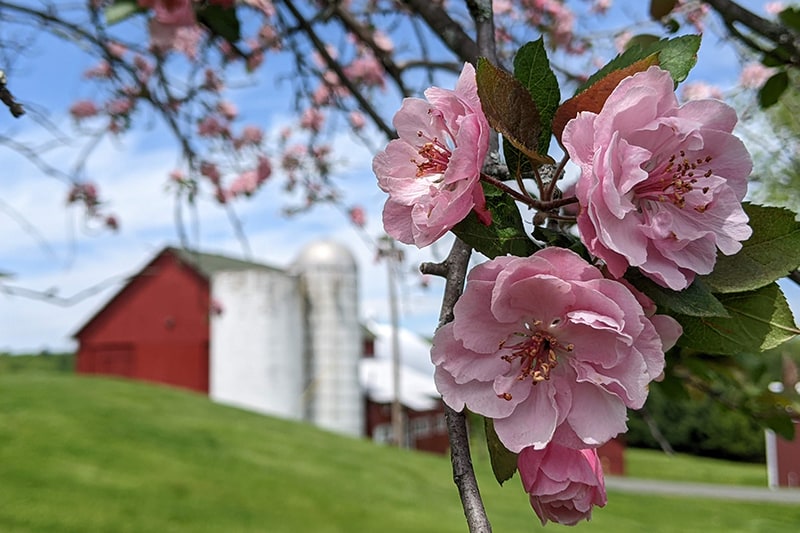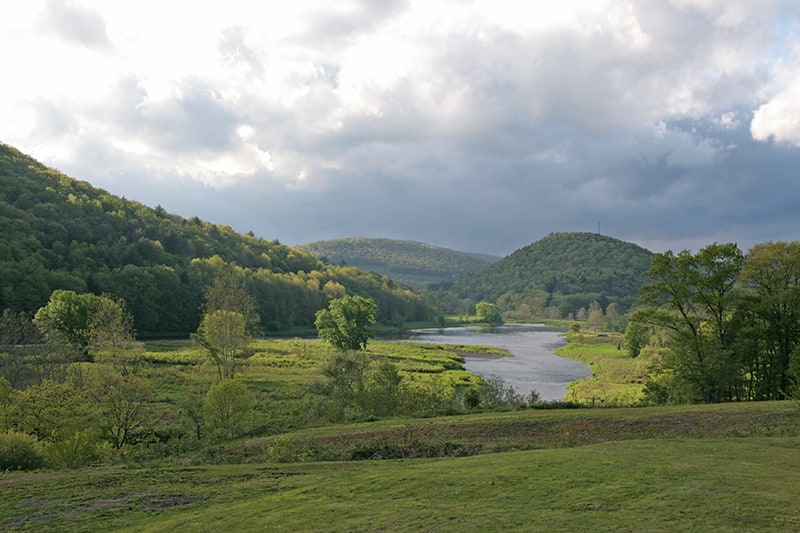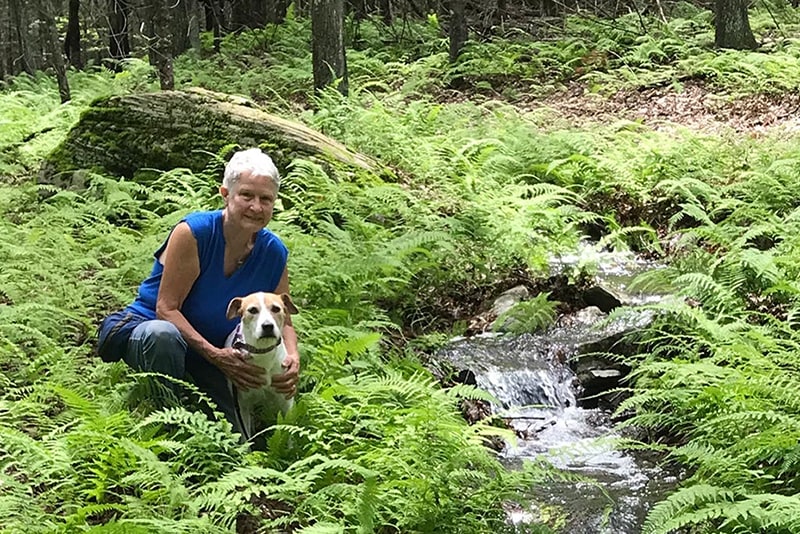Privacy Policy
Privacy policy of the Delaware Highlands Conservancy
This website is owned and operated by the Delaware Highlands Conservancy (the Conservancy). Our intention is to provide information and products in support of private land conservation. We recognize that visitors to our site may be concerned about the information they provide to us and how we treat that information. The Conservancy is committed to honoring our constituents’ privacy preferences.
This policy covers www.delawarehighlands.org, which is owned and operated by the Conservancy. We encourage you to take the time to read this privacy policy and those of any website you visit.
Information Collected:
Donations
You do not need to create an account to make a donation to the Conservancy, however, you are required to provide at a minimum your name, address, and phone number. For information about the handling of your credit card information, please see the section below titled “Security of Your Information”.
Internet Protocol Address
An Internet Protocol (IP) address is the number that is automatically assigned to your computer when you use the Internet. We collect an IP address from all visitors to our website. We use IP addresses to help diagnose problems with our server, administer our website, analyze usage trends, and gather broad demographic information.
Subscribing to Alerts and eNewsletters
To sign up for alerts and eNewsletters you are in most cases only required to provide us with your full name and e-mail address.
The Conservancy uses MailChimp.com to manage our eNewsletters. View the MailChimp.com Privacy Statement.
Other Information
There are occasions when we will ask for additional information, such as professional specialities, title, or your organizational affiliation. We do this to better understand and respond to your needs, and provide you with services and benefits that may be valuable to you.
Mail Sent to Us Containing Personal Information
You may decide to send the Conservancy personally identifying information, for example, in an e-mail message requesting information about your membership. We will use this information to determine how to respond to you and we may add your information to our database. If you wish to view, modify, or remove your Personal Information from our records, please see the section: How to Access, Modify, and Remove Personal Information. It is important to note that we legally cannot remove a record from our database if that record contains information containing donations. At your request, the record may be marked to receive no other mailings.
Use of Information
Your information will be used to issue invoices, administer accounts, collect and process payments and to send information to you about the Delaware Highlands Conservancy and our services. You may opt-out of mailings (both postal and e-mail) at any time if you do not wish to receive non-business critical information from us. The Conservancy will not sell your e-mail address for commercial purposes.
How to Access, Modify, or Remove Personal Information (including Opting Out):
If at any time you wish to stop receiving correspondence from the Conservancy, you may opt-out at any time from by selecting the unsubscribe link located at the bottom of every electronic communication, or by contacting us at info@delawarehighlands.org or calling 570-226-3164. Please provide enough information for us to be able to identify you.
Written requests may be sent to:
Delaware Highlands Conservancy
571 Perkins Pond Rd
Beach Lake, PA 18405
To request the removal of your personal information from our records, please send a letter to the address above.
If your record contains information concerning donations, we legally cannot remove it from our database. If you have not made a donation, if you request that we remove all of the personal information stored in your profile, we will promptly do so.
Security of Your Information:
We will take appropriate steps to protect the security of your personal information. We will also protect your personal information in storage. We have implemented security policies, rules, and technical measures to protect the personal data that we have under our control from: unauthorized access; improper use or disclosure; unauthorized modification; and unlawful destruction or accidental loss. All our employees who have access to, and are associated with processing of personal data, are obliged to respect the confidentiality of our visitor’s personal data.
All sensitive information (such as your credit card information) provided to the Conservancy through our website is transmitted either to us or to our credit card processor using Secure Socket Layer (SSL) encryption. SSL is a proven coding system that lets your browser automatically encrypt, or scramble, data before you send it to us. No credit card information is stored on our site.
Unfortunately, no data transmission over the Internet can ever be 100% secure. While we strive to protect your information to the fullest extent, we cannot ensure or completely guarantee the security of such information.
Links to Third Party Sites
We provide links to third party sites. Since we do not control those websites, we encourage you to review the privacy policies posted on these third party sites.
Cookies
‘Cookies’ are small files sent from a web server to your computer through your browser program. There are two types of cookies: non-persistent and persistent cookies.
A non-persistent cookie enables a website to temporarily keep information on your computer as you travel from one page to another on our site. This cookie is automatically deleted from your machine when you close your browser. Because these cookies are necessary to provide some functions, failure to allow such cookies will make our website unavailable to you.
A persistent cookie is kept even when you close your browser. You can manually delete these cookies using commands specific to your browser and computer system. These cookies store information that would generally not change from session to session. They also contain information that would need to be reentered by you each time you visit the website. For example, a common use of persistent cookies is to allow a registered site visitor to enter the site without having to specify their user-id and password.
Use of Cookies
We use cookies for various reasons. We only read cookies written by our site. We do not use cookies to obtain information on other websites that you may visit. We may use cookies to store some history about the parts of our site that you have visited to help you navigate our site more easily.
Our Compliance with Federal Law
Children’s Guidelines
The Conservancy complies fully with the Children’s Online Privacy Protection Act of 1998 (COPPA).
None of the websites covered by this policy knowingly collect identifiable personal information from children under age 13. If we discover that a person under the age of 13 has provided us with any personally identifiable information, we will delete that information from our systems. We are unable to reply to information requests from children under the age of 13, if so identified. A parent or guardian must initiate any requests for information from children under the age of 13 on their behalf. We encourage parents to supervise children when they browse the internet.
Spam
The Conservancy complies fully with the Controlling the Assault of Non-Solicited Pornography and Marketing Act of 2003 (CAN-SPAM Act). To this end, the
Conservancy:
• Always offers recipients of e-mail marketing and eNewsletters a clear means of opting-out from the receipt of future messages;
• Always includes a link to the Conservancy’s physical address within the body of all e-mail messages;
• Never uses false or misleading header information in any e-mail message;
• Never attempts to deceive e-mail recipients by using deceptive subject lines;
• Never uses automated means to harvest e-mail addresses from websites or web services; and
• Never generates e-mail addresses using programmatic methods.
Questions and Contact Information:
The Conservancy welcomes comments and questions on this policy. We are dedicated to protecting your personal information, and will make every reasonable effort to keep that information secure.
If you have any questions, please contact us at:
Delaware Highlands Conservancy
PO Box 218
Hawley, PA 11842
570-226-3164
info@delawarehighlands.org
The information you provide to us will also be covered by this policy.
Changes to the Privacy Policy and Changes in Ownership:
We may change or supplement this Privacy Policy from time to time. We will post an appropriate notice of changes to the Privacy Policy on our Site. Privacy Policy changes will apply to the information collected from the date we post the revised Privacy Policy to the Site, as well as to existing information held by us.
If we decide to change this policy in a material way and we seek to collect, use or disclose Personal Information for purposes other than those to which consent has been obtained, we will be in compliance with the applicable privacy laws and provide individuals an opportunity to opt-out.
J. Carpenter highlights in his research that Flugsvamp 4.0 and other dark web marketplaces have to regularly change their onion addresses to counteract DDoS attacks and evade being blacklisted by services and antiviruses.





